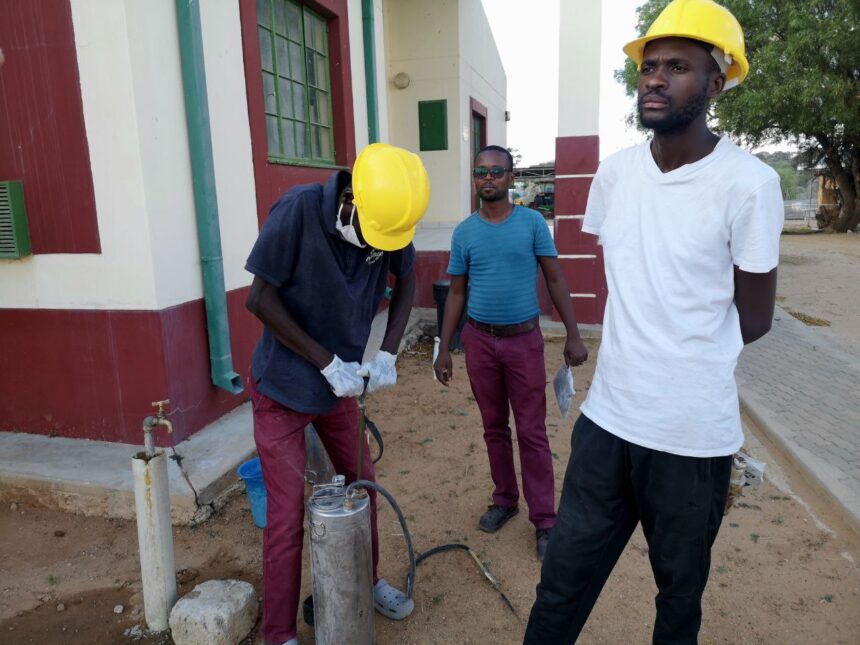Michael Madhimba
EPUKIRO – The settlement of Epukiro Post 3 in the Omaheke region has in recent weeks been plagued by mosquitoes, owing to stagnant water bodies in the area.
Residents at the settlement have expressed concern over the health hazard if the situation is not promptly addressed.
In response, a fumigation team from the health ministry began operations earlier this week as part of a routine fumigation exercise.
One of the malaria control fumigation technical team members, Dalton Doeseb, attributed the recent increase in mosquitoes in the settlement to stagnant water bodies, particularly the sewerage pond.
“Our investigations revealed a broken water pump, which has resulted in stagnation of water, thereby creating a conducive breeding environment for larvae development,” he said.
He highlighted the need for a collaborative approach in tackling the infestation, noting that the broken pump falls under the ambit of the Ministry of Works and Transport.
The malaria control team is employing a two-pronged strategy – targeting mosquito larvae at the source, and conducting indoor fumigation. Regular monitoring will continue over the coming weeks to bring the situation under control.
Chief Environmental Health Practitioner for the Omaheke region, Elvis Uasora confirmed the increase in mosquitoes and detailed the region’s malaria control efforts.
“The Omaheke region’s malaria control strategy is focused on larvae siting, owing to the number of cases recorded. We currently have 57 malaria cases recorded at our health facilities throughout the entire region, inclusive of private health centres,” he said.
The health official revealed that Epukiro recorded one imported case of malaria earlier this year, involving a farmworker who travelled from another constituency.
The ministry’s malaria control strategy focuses heavily on larvae siting, which involves both chemical and physical control measures to eliminate stagnant water sources and inhibit mosquito breeding. Indoor spraying is prioritised in areas with confirmed malaria cases.
Uasora added that two villages in the Epukiro constituency, Otjimanangombe and Okozondje, were the only localities that received rainfall and had undergone larvae siting.
The malaria control exercise will be repeated fortnightly across the region, with schools identified as a key focus area.
-Nampa



